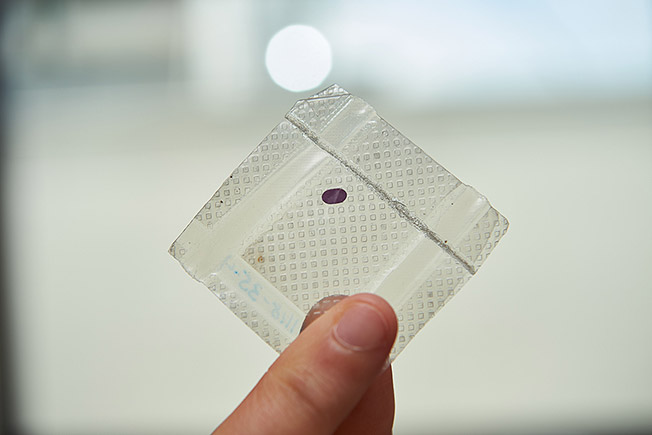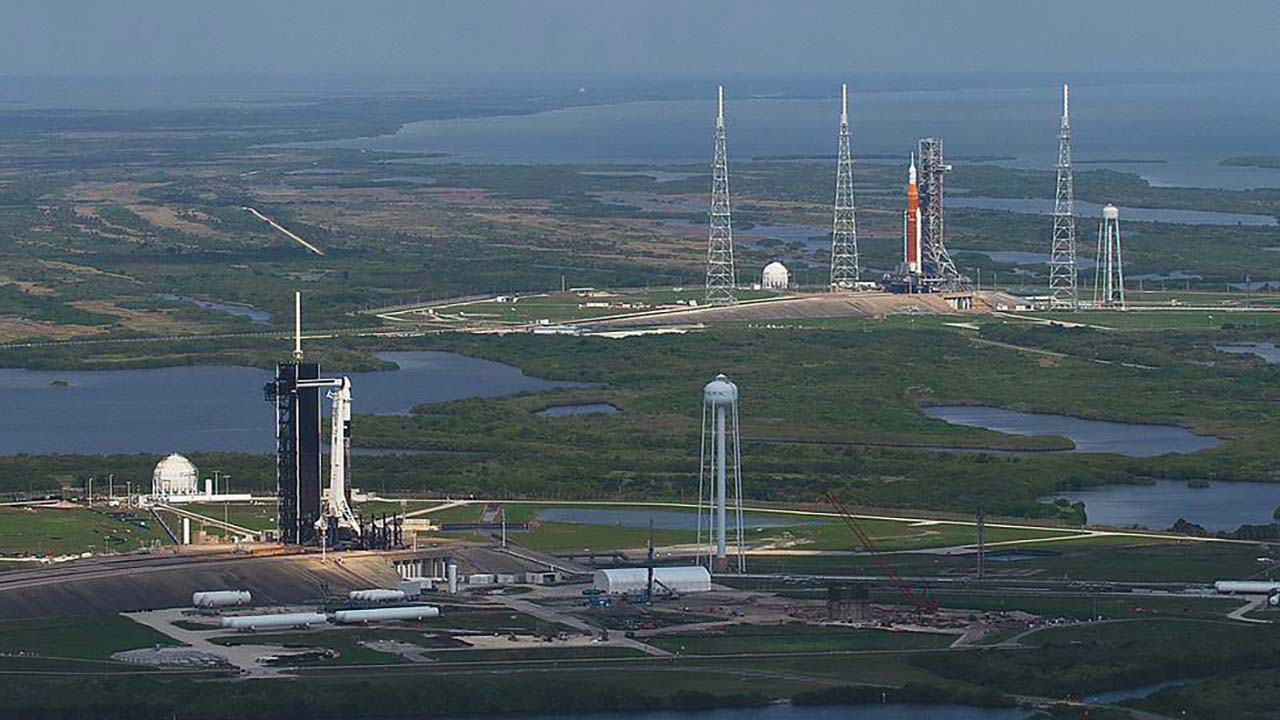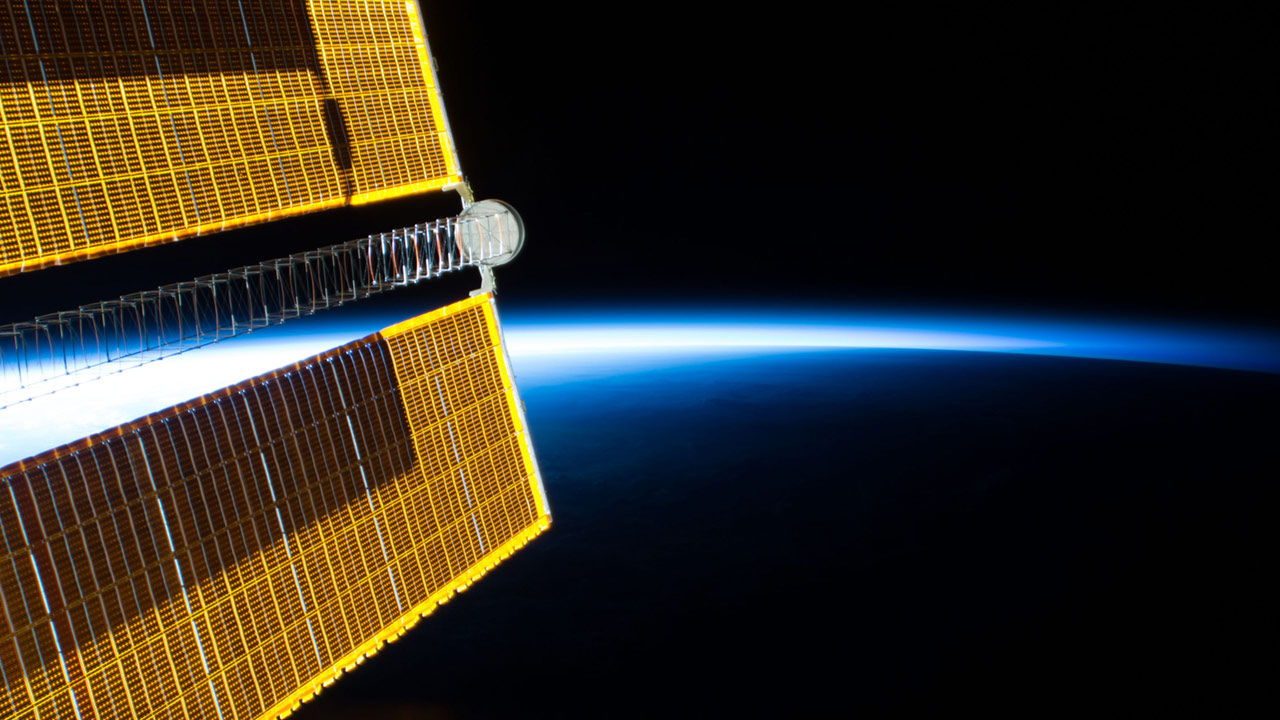At a Glance
- LambdaVision conducted an ISS National Lab-sponsored investigation, which launched in December 2018, to advance development of a retinal implant that restores vision to patients with retinal degeneration.
- This week, LambdaVision, along with Implementation Partner Space Tango, was awarded $5 million from NASA for a series of additional ISS studies to continue development of the retinal implant.
- The implant consists of multiple layers of a light-activated protein derived from bacteria, and manufacturing the implant in microgravity can improve the uniformity of the layers.
- Improvements in the implant could lead to a reduction in materials needed for production, lower manufacturing costs, and accelerated production of the implant for preclinical and clinical efforts.
- LambdaVision will first explore production of the implant for patients with advanced retinitis pigmentosa, with follow-on applications in patients with age-related macular degeneration.
In December 2018, biotechnology startup LambdaVision launched an investigation to the International Space Station (ISS) U.S. National Laboratory to advance the development of the company’s innovative retinal implant. The implant is capable of restoring high-resolution vision to patients with retinal degeneration. Now, LambdaVision, along with Implementation Partner Space Tango, has received a NASA award of $5 million to support the continued development of the implant through additional studies onboard the ISS.

LambdaVision’s tiny protein-based retinal implant. The implant is the small purple dot, which is about the size of a paper hole punch.
Media Credit: Image courtesy of Peter Morenus/UConn Photo
LambdaVision’s novel retinal implant consists of multiple layers of a light-activated protein derived from bacteria. The implant is produced by adding the protein through a layer-by-layer process, and gravity negatively affects the uniformity of the layers.
However, in the microgravity conditions on the ISS where gravity-driven forces such as sedimentation are minimized, the protein layers can be deposited more homogeneously, resulting in a higher-quality implant that requires fewer layers. This, in turn, could reduce the amount of materials needed to produce the implant, lower manufacturing costs, and accelerate production time to manufacture the implant for future preclinical and clinical efforts.
Accelerating Innovative Startups in Space
LambdaVision’s initial ISS National Lab investigation, which launched on SpaceX’s 16th commercial resupply services mission, was supported by a MassChallenge “Technology in Space Prize.” This annual award sponsored by the ISS National Lab and Boeing provides support for innovative startups associated with the MassChallenge startup accelerator program.
LambdaVision CEO Nicole Wagner discussed the company’s ISS National Lab investigation as a panelist in the 2019 ISS Research and Development Conference session “Accelerating Startups in Space.” At the conference, Wagner also received a 2019 International Space Station Research Award for Innovation in Biology and Medicine for LambdaVision’s innovative retinal implant research.
NASA’s award will support a series of flight projects to the ISS over three years for LambdaVision, together with Space Tango, to continue to examine the production of the retinal implant in microgravity. The research aims to evaluate and improve in-orbit production processes and to develop retinal implants for analysis back on Earth.
“Partnering with Space Tango and working closely with NASA continues to be an impactful experience that is providing new insight in the development of our artificial retina, and we are confident that this work will one day benefit patients who have lost their sight,” said Dr. Jordan Greco, chief scientific officer at LambdaVision. “It is also our hope that LambdaVision’s work will inspire new research and commercial product development that can help foster a thriving low Earth orbit economy.”
LambdaVision will first explore production of the implant to restore meaningful vision in patients with advanced retinitis pigmentosa. Currently, there is no cure for retinitis pigmentosa, which affects around 100,000 people in the United States and about 1.5 million people worldwide. There are also follow-on applications for use of the implant in patients with age-related macular degeneration—the leading cause of blindness in adults over the age of 55.
In addition to advancing LambdaVision’s retinal implant, improvements in the layer-by-layer production process could also be valuable for numerous other products that require layered manufacturing, and this research could help pave the way for such products to be produced in space to benefit people on Earth.
“As we explore the seemingly immense ways in which microgravity can benefit the development and production of a wide range of products, our long-term collaboration with LambdaVision continues to provide us with valuable learnings that might one day help some patients regain sight and may also lead to other important production discoveries,” said Twyman Clements, co-founder and chief executive officer of Space Tango.
Learn more about LambdaVision’s ISS National Lab investigation in this ISS360 article guest-authored by LambdaVision CEO Nicole Wagner and in this Q&A with her.






